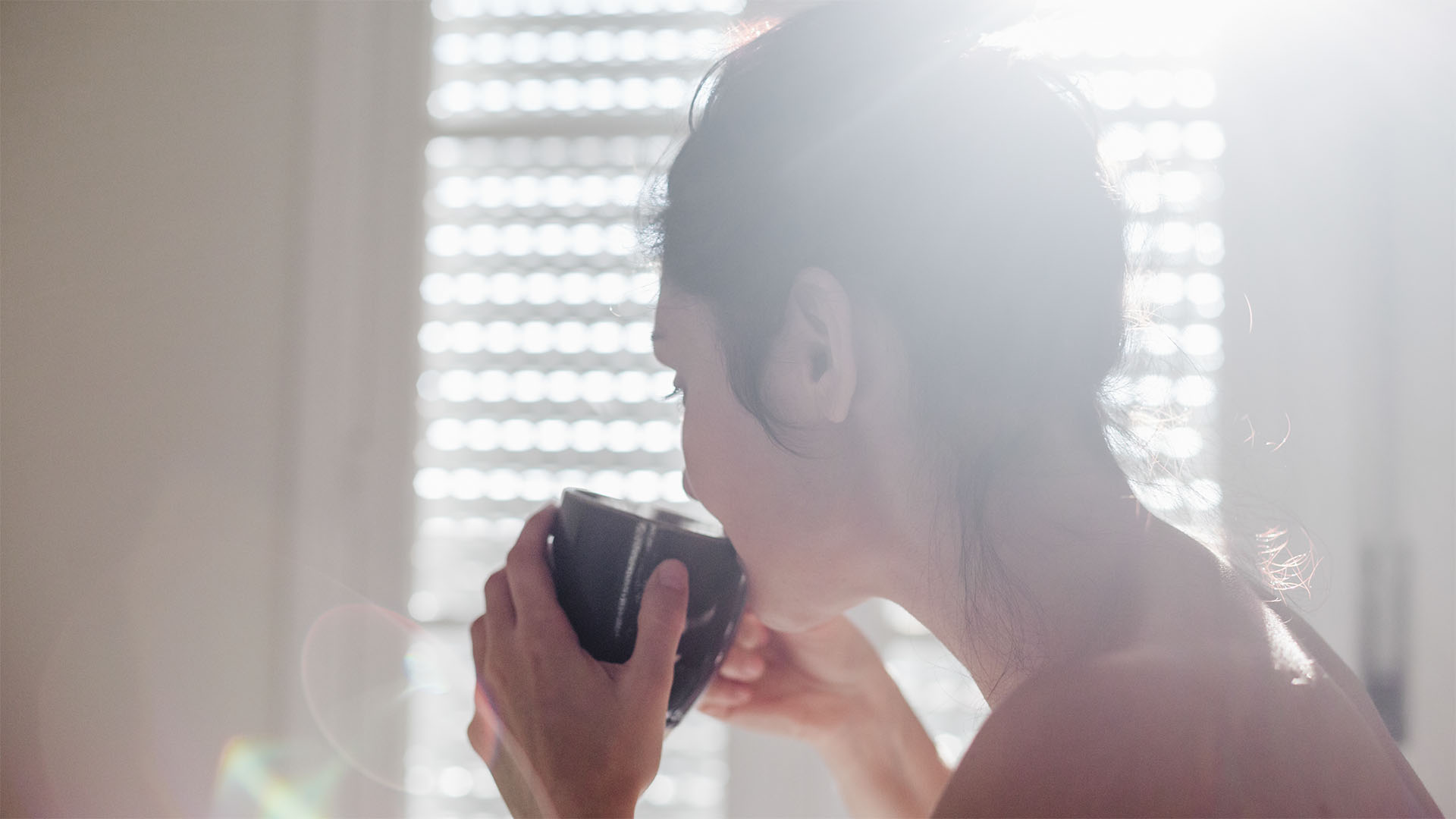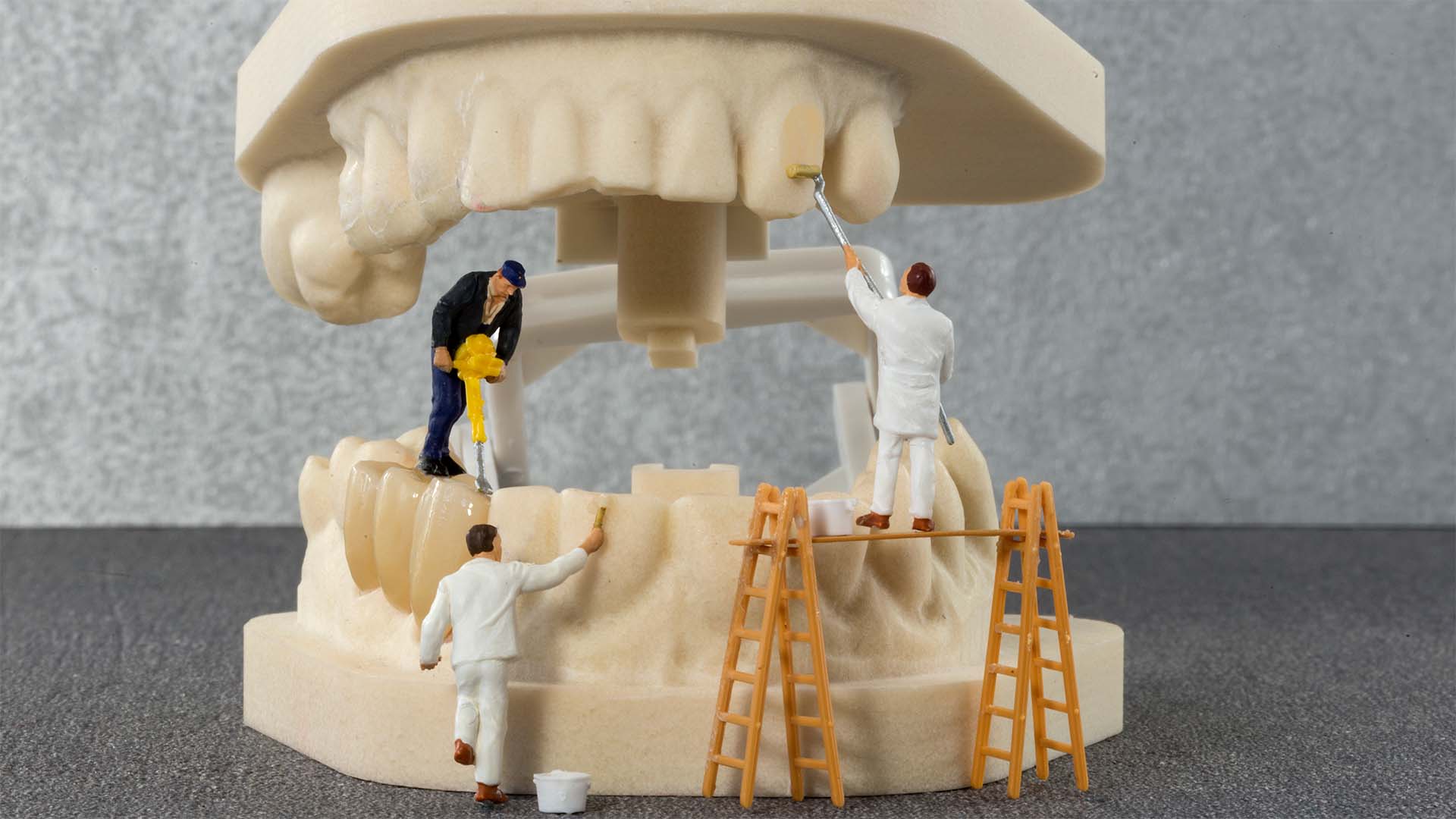Dental Erosion at Dawn: Why do teeth suffer more in the morning?
Every morning when we wake up, our teeth face a silent ‘chemical battle.’ During the night, saliva production decreases and oral bacteria proliferate, creating a more acidic environment in the mouth. At the same time, common morning habits—such as what we eat and drink when we wake up—can aggravate this scenario. Tooth erosion is the wearing away of tooth enamel caused by acids (whether from food, drinks, or the stomach itself). Tooth decay, on the other hand, is caused by bacteria that produce acid from sugars, forming cavities in the tooth. Early in the morning, our teeth can be vulnerable to both acid erosion and bacterial action, especially if we do not take certain precautions in our morning routine.
Caries vs. Erosion: Fundamental Differences
It is important to understand the differences between tooth decay and tooth erosion, because although both problems cause damage to the teeth, their origins and characteristics are not the same. Tooth decay is a bacterial disease: it forms when plaque bacteria consume sugar or starch residues in the mouth and produce acids. These acids dissolve minerals in the enamel locally, paving the way for small cavities (the ‘holes’ in the tooth). Cavities tend to appear in areas where plaque accumulates, such as tooth fissures or between teeth, and often cause pain when they reach deeper layers. In advanced stages, they require restorative treatment (fillings) by a dentist.
On the other hand, tooth erosion occurs without the involvement of bacteria – it is a direct chemical wear of the enamel by acidic substances. Unlike caries, which is usually localised, erosion can affect large areas of the tooth surface exposed to acid. External sources include acidic foods and beverages (e.g., soft drinks, citrus juices), while internal sources include stomach acid in cases of gastroesophageal reflux or frequent vomiting. Even those who keep their teeth clean and free of plaque can suffer erosion if they are frequently exposed to acids. Initially, erosion does not cause visible cavities like decay, but it thins the enamel. Over time, teeth may become more translucent at the edges, yellowish (due to exposed dentine) and sensitive to temperature changes. Although it does not usually cause acute pain at first, erosion weakens the tooth and can increase the risk of secondary cavities and other lesions. In summary: cavities involve bacterial plaque and result in localised holes in the tooth; erosion involves direct acid and causes more diffuse surface wear of the enamel.

Morning Habits That Harm Your Teeth
Our morning routine can greatly influence the health of our teeth. Some habits when waking up or during breakfast can aggravate tooth erosion and promote cavities without us even realising it. Here are some common morning behaviours that can be harmful:
Not brushing your teeth when you wake up: During sleep, bacteria multiply in the mouth, forming plaque. If you go straight to breakfast without brushing your teeth first, you are providing food (sugars from breakfast) for these bacteria. This results in more acid production in the mouth early in the morning, increasing the risk of tooth decay. In addition, without morning hygiene, your teeth are unprotected against the acids and sugars in the first meal of the day.
Brushing immediately after an acidic breakfast: Many people have the habit of brushing their teeth right after eating in the morning. However, if breakfast included acidic items (such as orange juice, citrus fruits, sour yoghurt) or sugary items, brushing immediately afterwards can do more harm than good. This is because tooth enamel is temporarily softened by the acidity of the food. Brushing at this time can spread the acids across the tooth surface and literally rub away the softened enamel, making it easier to remove. This hasty habit can accelerate tooth erosion and demineralisation. Dentists recommend waiting about 20 to 30 minutes after morning meals before brushing your teeth, giving your saliva time to neutralise the pH in your mouth.
Drinking very acidic beverages on an empty stomach: Drinking warm lemon water on an empty stomach, green juice with acidic fruits, or even pure orange juice right after waking up can be an acid shock to your teeth. These liquids have a low pH and immediately begin to corrode the enamel. When this habit is daily, acidified enamel wear accumulates over time (chronic erosion). A common mistake is to brush your teeth immediately after drinking these beverages, thinking that this will remove the acid – when in fact, as mentioned, immediate brushing aggravates corrosion.
Excessive sugar consumption at breakfast: Sugary cereals, bread with jam, cakes, sweetened coffee or tea… A morning meal rich in sugar quickly feeds the bacteria in your mouth. If hygiene is not carried out properly, this sugar is converted into acid by bacterial action, initiating the process of tooth decay. In addition, some sweet and sticky foods consumed in the morning (such as caramels or sweets) can stick to the teeth and prolong the production of acid by bacteria. Starting the day with too much sugar without proper dental cleaning is a sure-fire recipe for developing cavities over time.
Dry mouth upon waking: Many people wake up with a dry mouth, whether due to mouth breathing during sleep, the use of certain medications, or simply dehydration. Saliva is a natural protector of teeth – it neutralises acids and helps to “wash” the mouth. In the morning, with less saliva flow, the environment is more conducive to acidity. If a person does not hydrate and stimulate saliva early in the morning, acids (both those produced by bacteria and those from food or the stomach) cause more damage. For example, those who practice prolonged morning fasting without drinking water may spend extra hours with low saliva and unbalanced oral pH. Dry mouth itself does not cause tooth decay or erosion, but it aggravates both processes due to a lack of acid neutralisation.
Morning gastric reflux and vomiting: Acids from the stomach can also attack the teeth, especially in the early hours of the day. People who suffer from nocturnal gastroesophageal reflux may wake up with stomach acid in their mouth (bitter or sour taste). This gastric acid is extremely corrosive to enamel and causes erosion, especially on the inner surface of the teeth (lingual/palatal) over time. Pregnant women with morning sickness (frequent vomiting upon waking) experience the same problem: the acid in the vomit comes into contact with the teeth and causes enamel wear. In these cases, it is essential not to let the acid act for too long – you should rinse your mouth thoroughly with water immediately after the episode and, if possible, brush your teeth gently afterwards to remove any acid residue.
Practical Tips for Protecting Your Teeth in the Morning
To keep your smile healthy, it is worth adjusting your morning routine with a few simple but effective steps:
Brush your teeth as soon as you wake up: Before eating breakfast, brush thoroughly with fluoride toothpaste and a soft-bristled toothbrush. This removes plaque that has accumulated overnight and protects your enamel with fluoride, preparing your teeth for food. This reduces the amount of bacteria and allows you to start the day with a clean mouth.
After meals, wait a while before brushing: Don’t rush to brush right after finishing breakfast, especially if you’ve consumed acidic or sweet items. Wait around 20 to 30 minutes. This interval allows saliva to regulate the pH of your mouth and the enamel to partially remineralise. While waiting, you can rinse your mouth with water to remove food debris and dilute acids.
Be careful with acidic foods and drinks: If you like orange juice, lemonade or citrus fruits in the morning, try to consume them with other less acidic foods (e.g. with toast or milk/yoghurt) rather than on an empty stomach. Eating something rich in calcium, such as a piece of cheese, after drinking juice also helps to neutralise the acidity. Use a straw when drinking acidic beverages to reduce contact with your teeth. And avoid ‘nibbling’ or sipping acidic beverages for long periods of time — instead, drink them all at once and then rinse your mouth.
Moderate sugar at breakfast: Try not to start the day with too much refined sugar. Opt for sugar-free versions of foods or include fibre-rich items that reduce the sugar spike available to bacteria. If you consume sweet things, double down on oral hygiene afterwards (remembering to wait a while if it is something acidic). A good trick is to finish breakfast by chewing sugar-free gum for a few minutes – this stimulates saliva and helps clean your teeth until you can brush them.
Stay hydrated and combat dry mouth: Drink a glass of water when you wake up, even before your coffee or juice. Staying hydrated improves saliva flow. If you take any medication that causes dry mouth in the morning, talk to your doctor and dentist; you may be advised to use a saliva substitute or fluoridated mouthwash when you wake up to protect your teeth. Avoid smoking first thing in the morning, as cigarettes worsen dry mouth and gum health.
If you experience reflux or morning sickness, neutralise the acid: For those who experience acid reflux at night or upon waking, it is important to treat the medical condition with professional guidance. On a daily basis, if you feel acid in your mouth when you wake up, rinse your mouth with water or a solution of water and baking soda (half a teaspoon of baking soda diluted in a glass of water) to neutralise the acidity before brushing. In the case of morning sickness with vomiting, rinse immediately after vomiting and, as soon as possible, brush your teeth thoroughly with fluoride toothpaste. This will remove strong acids from the stomach and protect the enamel.
Use a gentle brushing technique: Brush your teeth gently, especially in the mornings when your teeth may be more sensitive or vulnerable. Use a soft-bristled toothbrush and do not apply excessive force. Use gentle, circular motions, covering all surfaces, without scrubbing aggressively. Avoid highly abrasive toothpastes (such as some whitening toothpastes); choose fluoride toothpastes that are recommended for enamel protection. This way, you can clean your teeth without further wearing down the enamel.
Consulte seu dentista regularmente: Inclua o check-up odontológico em sua rotina. Visitas periódicas (a cada 6 meses, por exemplo) permitem que o dentista detecte sinais iniciais de erosão ou cárie e aplique medidas preventivas. Tratamentos como aplicação de flúor tópico (verniz fluoretado) fortalecem o esmalte, e pequenas restaurações podem ser feitas em áreas já desgastadas para evitar progressão. O profissional também pode orientar sobre produtos específicos, como enxaguantes com flúor ou pastas com maior poder de remineralização, caso perceba que seus dentes precisam de cuidados extras.



